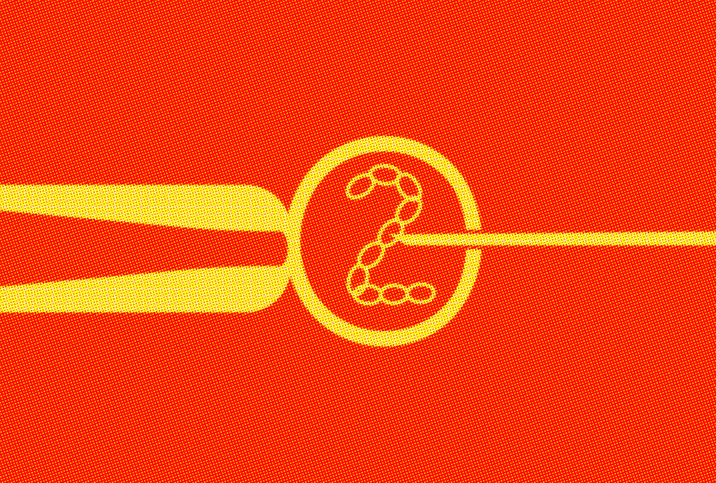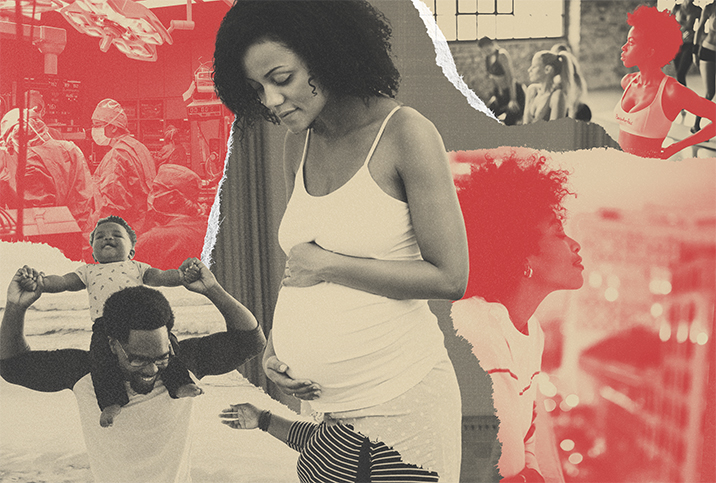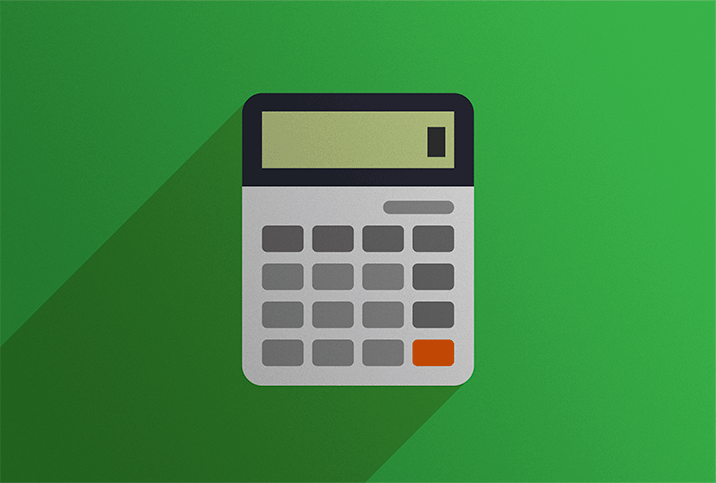Tall, Pregnant Women More Likely to Have Twins, Study Suggests

Pregnant women who are vertically blessed may have a higher chance of giving birth to twins.
Tall people are known for a lot of things—their somewhat advantageous position in seeing at concerts, being the go-to person at the grocery store for those elusive top-shelf items, and dealing with a lot of jokes about the weather "up there."
But could tall women soon be known for being more likely to have twins during pregnancy? According to a 2006 study, women who had multiples were taller on average than women who birthed one baby. There is some evidence that the link may have something to do with a boost of an insulin-like growth factor in those with height advantages, so we took a look to see if there's any basis to the claim that tall equals twins.
Benefits of being tall and pregnancy
The short answer to if tall women are more likely to have twins is yes, according to Jane Frederick, M.D., F.A.C.O.G., director of HRC Fertility in Newport Beach, California, and affiliated with the USC School of Medicine.
"There's a lot of evidence in terms of height as it really relates to having twins," she noted. Frederick explained that it appears the insulin-like growth factor (present at higher rates in taller people) can actually stimulate the follicle-stimulating hormone in a woman's body that governs the rate of spontaneous twinning.
In layman's terms: That growth factor in tall people stimulates the ovaries to release two eggs instead of one, which can lead to—you guessed it—twins.
Frederick also pointed to the fact that countries that have taller women, such as Sweden, also have higher rates of twins being born as compared to countries with shorter women, as proof that there may be a link between twins and height in women.
Twins on the rise
There is no doubt about it: The rate of twins being born in the U.S. has risen dramatically over the past 20-some years. In 1980, only 18.9 out of every 1,000 live births were twins—by 2019 that number rose to 32.1. That's a lot of twins.
But, of course, not all of that dramatic increase can be attributed to mere height. A large portion of the rise in multiples is also due to reproductive technology, such as in vitro fertilization (IVF). So you might be wondering: What happens if a tall woman also gets IVF? Is her chance of twins or multiples doubly increased?
The answer to that, explained Frederick, is no, simply because a person going through IVF is not having natural cycles. Without a regular, functioning cycle, there is no egg or eggs being released that can be fertilized. Thus, the chance of spontaneous twinning from two eggs being fertilized is simply not present.
In fact, Frederick added that, in theory, IVF carries a lower risk of twins, because the medical team's goal is to provide the couple with a healthy baby, and twin pregnancies can actually be more risky than singleton pregnancies.
"For IVF, the goal is not to have twins," she said. "Our goal is to have a single healthy baby for each couple that's trying, and because we know that the risk of twins is much higher for premature birth and that can lead to problems with the development of the baby. So we try hard to make sure that we're implanting a single healthy embryo."
Height and fertility
Of course, stature alone isn't just a determinant of someone's risk of having twins. Frederick also explained that there are many different factors that could contribute to a higher risk of having multiples, such as:
- Being over the age of 30
- Family history (especially on the mother's side)
- Race—African American pregnant people are more likely to have twins than other races, while Asian and Native American patients have the lowest twinning rates in a natural conception. White Caucasian women, especially those older than 35, have the highest rate of higher-order multiples like triplets, which Frederick noted is most likely due to the fact that they have more access to assisted reproductive technologies like IVF
- Previous pregnancies
- Previous multiples pregnancy
- Ovulation stimulating medicine
If you're someone who is tall and starting to slightly panic about your risk of growing twins one day, don't worry—height is just one factor of many that could determine the size of your future family. Plus, Frederick pointed out that being aware of your potential risk for twins is a positive thing.
"It's good that tall people who are going through life understand what their risks are, and twinning is one risk," Frederick said. Especially if you're looking to start or grow your family soon, have a history of twins in your family of origin, or will be utilizing reproductive technology, it's a good idea to have a conversation with your doctor about your risk for twins if you're above-average height for a female—which, for the record, is 5 feet 4 inches in the U.S.
And twins aside, being tall actually is an advantage during pregnancy. Tall women tend to be healthier overall and experience fewer complications during birth.
Taller women may also give birth to bigger babies, so if you're on the tall side and newly pregnant, watch out: If you're not sprouting twins, at the very least, you may be looking at a beautiful—and big—bouncing babe.



















